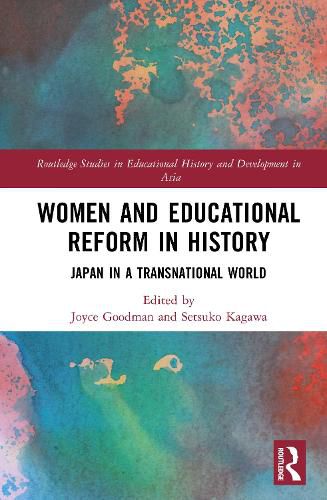Readings Newsletter
Become a Readings Member to make your shopping experience even easier.
Sign in or sign up for free!
You’re not far away from qualifying for FREE standard shipping within Australia
You’ve qualified for FREE standard shipping within Australia
The cart is loading…






This unique collection provides critical analyses of Japanese educational history by bringing together gender, transnational and transcultural perspectives.
It illustrates how Japanese, European and American women educators transcended national borders in seeking to reform and re-shape Japanese education and society in the midst of social and political change from the Meiji era (1868-1912) to 1948 and beyond, including during the American Occupation of Japan. It demonstrates how educational practice from Europe and the United States flowed into Japan before and after the first and second world wars but also became entangled with Japanese perspectives, as well as with nationalism, colonialism, imperialism and regionalism, as some Japanese educators sought to reform education for Asian women beyond Japan's borders. In an increasingly connected world, where, at the same time, opportunities for women's education in some countries are declining, the volume provides insights for readers into how women educators have co-operated historically across national borders in pursuit of reform in education and society in periods of immense social and political change, including at moments when nationalism and imperialism were in the ascendancy.
This volume will be of interest to academics, researchers, and post graduate students in the fields of Japanese history, history of Japanese education, Japanese women's history, gender perspectives and transnational and transcultural research. It will also be of interest to readers curious about the history of Asia more broadly.
$9.00 standard shipping within Australia
FREE standard shipping within Australia for orders over $100.00
Express & International shipping calculated at checkout
This unique collection provides critical analyses of Japanese educational history by bringing together gender, transnational and transcultural perspectives.
It illustrates how Japanese, European and American women educators transcended national borders in seeking to reform and re-shape Japanese education and society in the midst of social and political change from the Meiji era (1868-1912) to 1948 and beyond, including during the American Occupation of Japan. It demonstrates how educational practice from Europe and the United States flowed into Japan before and after the first and second world wars but also became entangled with Japanese perspectives, as well as with nationalism, colonialism, imperialism and regionalism, as some Japanese educators sought to reform education for Asian women beyond Japan's borders. In an increasingly connected world, where, at the same time, opportunities for women's education in some countries are declining, the volume provides insights for readers into how women educators have co-operated historically across national borders in pursuit of reform in education and society in periods of immense social and political change, including at moments when nationalism and imperialism were in the ascendancy.
This volume will be of interest to academics, researchers, and post graduate students in the fields of Japanese history, history of Japanese education, Japanese women's history, gender perspectives and transnational and transcultural research. It will also be of interest to readers curious about the history of Asia more broadly.